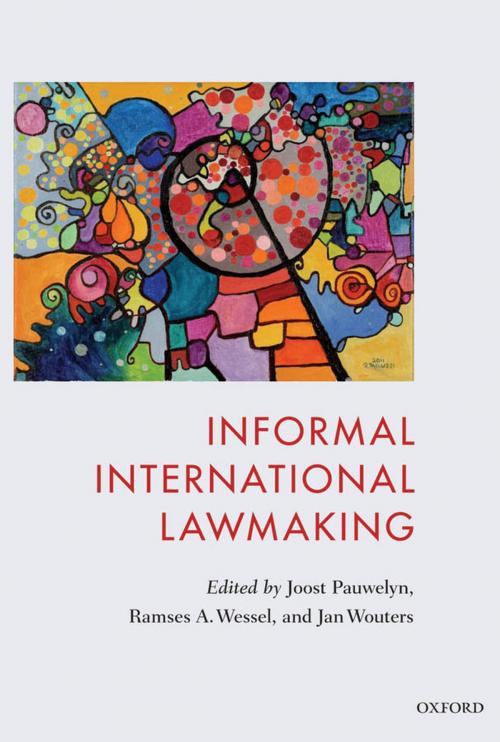Informal International Lawmaking
Nonfiction, Reference & Language, Law, International, Social & Cultural Studies, Political Science| Author: | ISBN: | 9780191633171 | |
| Publisher: | OUP Oxford | Publication: | September 27, 2012 |
| Imprint: | OUP Oxford | Language: | English |
| Author: | |
| ISBN: | 9780191633171 |
| Publisher: | OUP Oxford |
| Publication: | September 27, 2012 |
| Imprint: | OUP Oxford |
| Language: | English |
Many international norms that have emerged in recent years are not set out in formal treaties. They are not concluded in formal international organizations. They frequently involve actors other than formal state representatives. In the realm of finance, health, security, or the environment, international lawmaking is increasingly 'informal': It takes place in networks or loosely organized fora; it involves a multitude of stakeholders including regulators, experts, professional organizations and other non-state actors; it leads to guidelines, standards or best practices. This book critically assesses the concept of informal international lawmaking, its legal nature, and impact at the national and international level. It examines whether it is on the rise, as is often claimed, and if so, what the implications of this are. It addresses what actors are involved in its creation, the processes utilized, and the informal output produced. The book frames informal international lawmaking around three axes: output informality (novel types of norms), process informality (norm-making in networks outside international organizations), and actor informality (the involvement of public agencies and regulators, private actors, and international organizations). Fundamentally, the book is concerned with whether this informality causes problems in terms of keeping transnational lawmaking accountable. By empirically analysing domestic processes of norm elaboration and implementation, the book addresses the key question of how to benefit from the effectiveness of informal international lawmaking without jeopardizing the accountability necessary in the process of making law.
Many international norms that have emerged in recent years are not set out in formal treaties. They are not concluded in formal international organizations. They frequently involve actors other than formal state representatives. In the realm of finance, health, security, or the environment, international lawmaking is increasingly 'informal': It takes place in networks or loosely organized fora; it involves a multitude of stakeholders including regulators, experts, professional organizations and other non-state actors; it leads to guidelines, standards or best practices. This book critically assesses the concept of informal international lawmaking, its legal nature, and impact at the national and international level. It examines whether it is on the rise, as is often claimed, and if so, what the implications of this are. It addresses what actors are involved in its creation, the processes utilized, and the informal output produced. The book frames informal international lawmaking around three axes: output informality (novel types of norms), process informality (norm-making in networks outside international organizations), and actor informality (the involvement of public agencies and regulators, private actors, and international organizations). Fundamentally, the book is concerned with whether this informality causes problems in terms of keeping transnational lawmaking accountable. By empirically analysing domestic processes of norm elaboration and implementation, the book addresses the key question of how to benefit from the effectiveness of informal international lawmaking without jeopardizing the accountability necessary in the process of making law.















